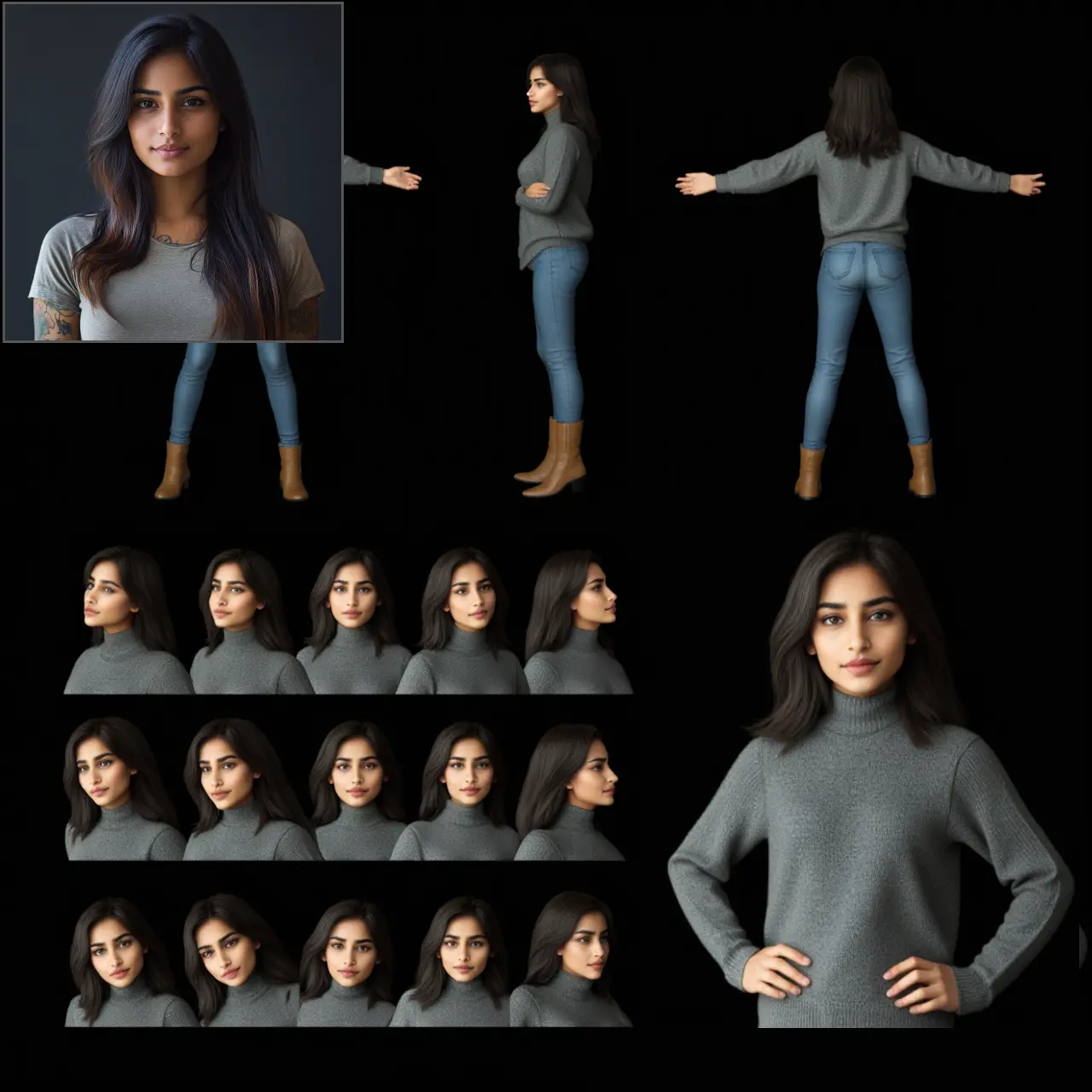ComfyUI Node: LoraLoaderTagsQuery
LoraLoaderTagsQuery
Categoryloaders
Extraltodeus (Account age: 3434days) Extension
LoadLoraWithTags Latest Updated
2025-02-25 Github Stars
0.07K
How to Install LoadLoraWithTags
Install this extension via the ComfyUI Manager by searching for LoadLoraWithTags- 1. Click the Manager button in the main menu
- 2. Select Custom Nodes Manager button
- 3. Enter LoadLoraWithTags in the search bar
Visit ComfyUI Online for ready-to-use ComfyUI environment
- Free trial available
- 16GB VRAM to 80GB VRAM GPU machines
- 400+ preloaded models/nodes
- Freedom to upload custom models/nodes
- 200+ ready-to-run workflows
- 100% private workspace with up to 200GB storage
- Dedicated Support
LoraLoaderTagsQuery Description
Facilitates loading LoRA models with tags for AI artists, streamlining integration into projects.
LoraLoaderTagsQuery:
The LoraLoaderTagsQuery node is designed to facilitate the loading of LoRA (Low-Rank Adaptation) models with associated tags, enhancing the model's usability by providing context-specific information. This node is particularly useful for AI artists who want to leverage pre-trained LoRA models in their projects. It allows you to query and fetch tags associated with a specific LoRA model, which can be used to better understand the model's training data and intended use cases. The node also supports the loading of the LoRA model into the current environment, ensuring that the model and its tags are readily available for further processing or integration into your AI art workflows. By using this node, you can streamline the process of incorporating LoRA models into your projects, making it easier to manage and utilize these models effectively.
LoraLoaderTagsQuery Input Parameters:
model
This parameter represents the base model into which the LoRA model will be loaded. It is a required input and ensures that the LoRA model is applied to the correct base model for further processing.
clip
This parameter represents the CLIP (Contrastive Language-Image Pre-Training) model, which is used in conjunction with the base model. It is a required input and ensures that the LoRA model is applied to the correct CLIP model for further processing.
lora_name
This parameter specifies the name of the LoRA model to be loaded. It is a required input and allows you to select from a list of available LoRA models. The list is sorted alphabetically for ease of selection.
strength_model
This parameter controls the strength of the LoRA model's influence on the base model. It is a floating-point value with a default of 1.0, a minimum of 0.0, and a maximum of 2.0, with increments of 0.1. Adjusting this value allows you to fine-tune the impact of the LoRA model on the base model.
strength_clip
This parameter controls the strength of the LoRA model's influence on the CLIP model. It is a floating-point value with a default of 1.0, a minimum of 0.0, and a maximum of 2.0, with increments of 0.1. Adjusting this value allows you to fine-tune the impact of the LoRA model on the CLIP model.
query_tags
This boolean parameter determines whether to query and fetch tags associated with the LoRA model. It has a default value of True. Enabling this option allows you to retrieve and utilize the tags for better understanding and context.
tags_out
This boolean parameter determines whether to output the fetched tags. It has a default value of True. Enabling this option ensures that the tags are included in the output, providing additional context and information.
print_tags
This boolean parameter controls whether the fetched tags should be printed to the console. It has a default value of False. Enabling this option is useful for debugging or for quickly viewing the tags without needing to access the output directly.
bypass
This boolean parameter determines whether to bypass the loading of the LoRA model. It has a default value of False. Enabling this option allows you to skip the loading process, which can be useful in scenarios where you only need to query the tags without applying the LoRA model.
force_fetch
This boolean parameter forces the fetching of tags even if they are already available. It has a default value of False. Enabling this option ensures that the latest tags are retrieved, which can be useful if the tags have been updated or changed.
opt_prompt
This optional string parameter allows you to provide a custom prompt that will be included in the output. It is useful for adding additional context or information to the output tags.
LoraLoaderTagsQuery Output Parameters:
model
This output parameter represents the base model with the LoRA model applied. It is the modified version of the input base model, incorporating the influence of the LoRA model as specified by the input parameters.
clip
This output parameter represents the CLIP model with the LoRA model applied. It is the modified version of the input CLIP model, incorporating the influence of the LoRA model as specified by the input parameters.
string
This output parameter contains the fetched tags, optionally combined with the custom prompt provided via the opt_prompt parameter. It provides a textual representation of the tags associated with the LoRA model, offering additional context and information.
LoraLoaderTagsQuery Usage Tips:
- Ensure that the
lora_nameparameter is correctly set to the desired LoRA model to avoid loading the wrong model. - Use the
strength_modelandstrength_clipparameters to fine-tune the influence of the LoRA model on the base and CLIP models, respectively. - Enable the
query_tagsandtags_outparameters to retrieve and utilize the tags associated with the LoRA model for better context and understanding. - Use the
print_tagsparameter for quick debugging or to view the tags directly in the console without accessing the output.
LoraLoaderTagsQuery Common Errors and Solutions:
"No informations found."
- Explanation: This error occurs when the node is unable to retrieve any information or tags for the specified LoRA model.
- Solution: Ensure that the
lora_nameparameter is correctly set and that the LoRA model exists in the specified path. You may also want to enable theforce_fetchparameter to force a fresh retrieval of the tags.
"calculating lora hash"
- Explanation: This message indicates that the node is in the process of calculating the hash for the specified LoRA model.
- Solution: This is a normal part of the process. If the node gets stuck here, ensure that the LoRA model file is accessible and not corrupted.
"requesting infos"
- Explanation: This message indicates that the node is attempting to fetch information for the specified LoRA model.
- Solution: This is a normal part of the process. If no information is retrieved, ensure that the LoRA model is correctly specified and that the necessary network or file access permissions are in place.
"tags found!"
- Explanation: This message indicates that the node has successfully retrieved tags for the specified LoRA model.
- Solution: This is a normal part of the process. If you do not see this message, ensure that the
query_tagsparameter is enabled and that the LoRA model has associated tags.
"trainedWords: <tags>"
- Explanation: This message prints the retrieved tags to the console.
- Solution: This is a normal part of the process if the
print_tagsparameter is enabled. If you do not see this message, ensure that theprint_tagsparameter is set to True.
LoraLoaderTagsQuery Related Nodes
RunComfy is the premier ComfyUI platform, offering ComfyUI online environment and services, along with ComfyUI workflows featuring stunning visuals. RunComfy also provides AI Models, enabling artists to harness the latest AI tools to create incredible art.


